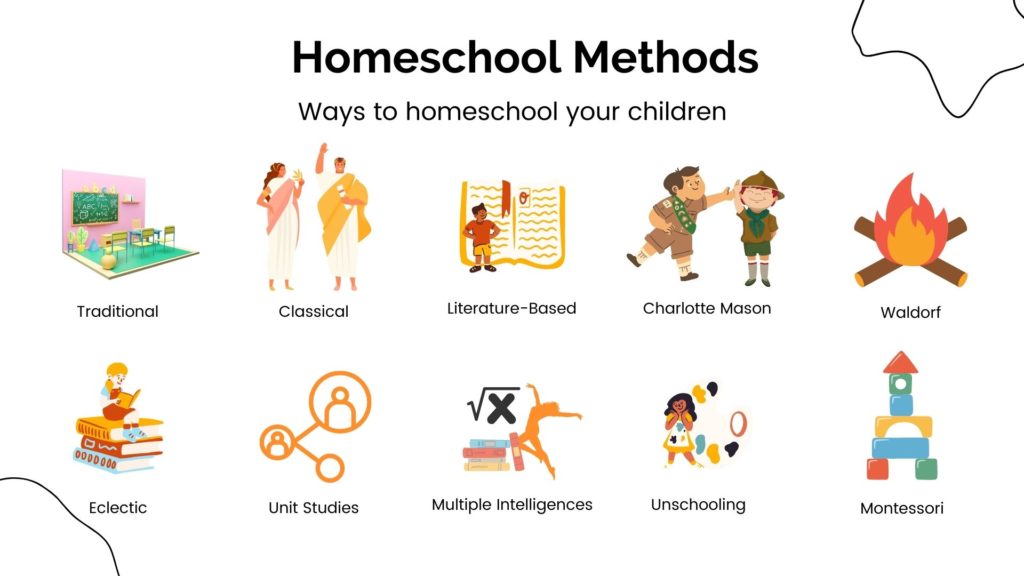Analyzing Homeschool Curriculums: Benefits and Drawbacks

Are you tired of dodging spitballs and listening to the incessant drone of the classroom clock? Do you find yourself daydreaming about teaching your child at home, where you can wear pajamas all day and have control over the curriculum? Well, before you trade in your pencil sharpener for a set of textbooks, let’s dive into the world of homeschool curriculums, exploring the benefits and drawbacks of taking your child’s education into your own hands. Grab your highlighter and let’s analyze the ABCs of homeschooling!
Benefits of Customization in Homeschool Curriculums
Are you tired of boring, one-size-fits-all homeschool curriculums? It’s time to embrace the power of customization! By tailoring your child’s education to their unique needs and interests, you can unlock a world of benefits that will make learning fun and exciting.
With a customized curriculum, you have the freedom to choose the topics and subjects that engage your child’s imagination. Whether they’re passionate about dinosaurs, outer space, or underwater basket weaving, you can create a curriculum that caters to their interests and keeps them motivated to learn.
Customization also allows you to adapt the pace and style of learning to suit your child’s individual learning style. Whether they thrive on hands-on projects, interactive games, or good old-fashioned book-learning, you can tailor their curriculum to help them succeed.
Forget about cookie-cutter curriculums that leave your child bored and uninspired. Embrace the power of customization and watch as your child’s love for learning grows by leaps and bounds. Plus, with the flexibility to adjust and adapt your curriculum as needed, you can ensure that your child is getting the education they deserve.

Variety of Learning Styles Addressed in Homeschooling
Homeschooling is the perfect setting for addressing a variety of learning styles. From visual learners to hands-on learners, every educational approach can be tailored to fit your child’s unique needs.
One of the perks of homeschooling is the ability to take field trips whenever you want. For the kinesthetic learner, this hands-on experience is invaluable. Whether you’re visiting a museum, conducting a science experiment in the kitchen, or exploring nature in your backyard, there are endless opportunities to engage all the senses.
For the auditory learner, reading aloud can be a powerful tool. With audiobooks, podcasts, and lively discussions, these students can absorb information through their ears rather than just their eyes. And let’s not forget about the visual learners who thrive on colorful charts, diagrams, and illustrations. Virtual reality technology and interactive online resources can bring subjects to life in a way that textbooks never could.
So whether your child learns best through movement, listening, watching, or a combination of all three, homeschooling can cater to their specific learning style. With a little creativity and flexibility, the possibilities are endless!

Flexibility and Freedom in Homeschooling Curriculums
Who says homeschooling has to be rigid and boring? With the freedom to design your own curriculum, the possibilities are endless. Let your creativity run wild and tailor your child’s education to their unique interests and learning style.
Forget about standardized testing and strict schedules. With homeschooling, you have the flexibility to take impromptu field trips, have outdoor lessons, or even do a science experiment in your pajamas. The world is your classroom, so why not make the most of it?
Here are a few ways to inject some fun and flexibility into your homeschooling curriculum:
- Theme weeks: Dive deep into a topic your child is passionate about for a whole week. Whether it’s dinosaurs, space, or cooking, let them explore and learn at their own pace.
- Project-based learning: Have your child work on a long-term project that incorporates multiple subjects, from research to presentation skills. It’s a great way to foster creativity and critical thinking.
- Flexible schedules: Who says learning has to happen from 9 to 3? Let your child sleep in, take breaks when needed, and schedule lessons around family activities. After all, learning never stops!

limitations-of-homeschool-curriculum-choices”>Potential Limitations of Homeschool Curriculum Choices
So you’ve decided to homeschool your kids, congratulations! But before you go out and buy every homeschool curriculum known to man, let’s talk about some potential limitations you might face with your choices.
First of all, not all homeschool curriculums are created equal. Some may not align with your child’s learning style or interests, leading to boredom and disengagement. Remember, just because something worked for your neighbor’s kid doesn’t mean it’s the right fit for yours.
Another limitation to consider is the cost. Homeschool curriculum choices can add up quickly, especially if you’re drawn to the shiny, flashy ones with all the bells and whistles. Your wallet may not appreciate your newfound obsession with educational toys and gadgets!
Lastly, be wary of the infamous “curriculum overload”. It’s easy to get caught up in all the amazing options out there and want to do it all. But remember, you’re only human (unless you’re secretly a robot, in which case, please share your secrets with us). It’s okay to take a step back and reassess if you’re feeling overwhelmed.

Opportunities for Personalized Education in Homeschooling
When it comes to personalized education in homeschooling, the possibilities are endless! With the freedom to tailor lessons to your child’s unique learning style, interests, and pace, the sky’s the limit. Here are some out-of-the-box opportunities to take your homeschooling game to the next level:
- Field trips galore: Who says learning has to happen within the four walls of a classroom? Take advantage of homeschooling to explore museums, nature centers, historical sites, and more. The world is your oyster!
- Guest teachers: Why limit your child’s education to just one teacher (ahem, you)? Invite friends, family members, or local experts to share their knowledge and skills. Cooking lessons with Grandma, anyone?
- DIY science experiments: Forget boring textbooks and canned lab experiments. Get creative with hands-on science projects using household items. Mentos and Diet Coke, anyone?
And remember, personalized education doesn’t have to be all work and no play. Embrace your child’s passions and hobbies, whether it’s music, art, sports, or something else entirely. Homeschooling opens up a world of opportunities to nurture your child’s individuality and foster a love of learning that will last a lifetime.
Navigating Standards and Assessments in Homeschooling Curriculum Selection
Homeschooling can be a daunting task, especially when it comes to navigating standards and assessments in curriculum selection. As a homeschool parent, you might feel like you’re on a never-ending scavenger hunt trying to find the perfect balance of educational content and effectiveness.
When selecting a homeschooling curriculum, it’s important to consider the various standards and assessments that are in place. You want to make sure your child is meeting all the necessary requirements while also ensuring they are learning and growing in a way that works best for them.
Here are some tips to help you navigate the murky waters of standards and assessments in homeschooling curriculum selection:
- Research your state’s homeschooling requirements to ensure you are meeting all necessary standards.
- Look for curriculum resources that offer pre-made assessments and testing tools to track your child’s progress.
- Don’t be afraid to get creative with your curriculum choices – there are plenty of non-traditional options available that can still meet educational standards.
FAQs
What are the benefits of analyzing homeschool curriculums?
Well, my dear reader, analyzing homeschool curriculums can help you determine if they are the right fit for your child’s learning style and needs. It’s like doing a detective work to uncover the perfect educational plan for your little Sherlock Holmes.
How can analyzing homeschool curriculums improve my child’s education?
By taking the time to analyze different curriculums, you can tailor your child’s education to meet their individual interests and strengths. It’s like creating a customized menu at a fancy restaurant, but instead of food, you’re serving up knowledge.
What are some drawbacks of analyzing homeschool curriculums?
Well, my friend, the downside of analyzing homeschool curriculums is that it can be time-consuming and overwhelming. It’s like trying to navigate a maze of educational options, only to end up feeling like you’re lost in a sea of textbooks and lesson plans.
How can I make the process of analyzing homeschool curriculums more manageable?
To make things easier on yourself, try breaking down the analysis process into smaller chunks. Take it one subject at a time, like solving a puzzle piece by piece. And remember, Rome wasn’t built in a day, so take your time and don’t rush the process.
The Final Verdict: To Curriculum or Not to Curriculum?
And there you have it, folks! Homeschool curriculums may have their perks, but they also come with their fair share of quirks. Whether you choose to follow a structured program or go with the flow, just remember that every homeschool journey is unique. So, grab your pencils, notebooks, and a whole lot of patience, because the homeschool adventure awaits!






